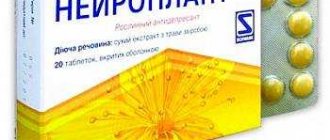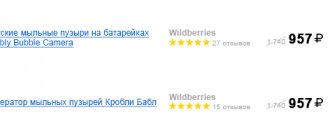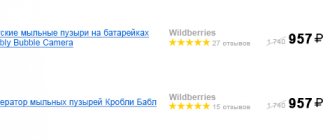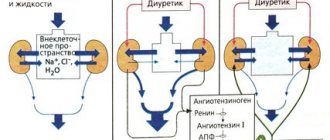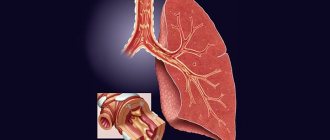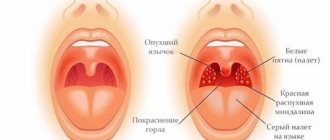Nausea and vomiting are extremely unpleasant manifestations of many diseases and pathological conditions of the body. Usually they watch for a person together, and if one comes, then the second one can appear at any moment.
Nausea is a discomfort manifested by a feeling of emptiness in the stomach and a dull wave rolling up to the throat. In this case, unpleasant sensations may occur in the stomach, esophagus or oral cavity. Nausea is often accompanied by:
- dizziness
- weakness
- increased salivation, causing you to swallow frequently
- heartbeat
- sweating
Nausea often precedes vomiting, which occurs as a sudden release of stomach contents through the mouth. Vomiting of food or mucous contents of the stomach usually occurs, but vomiting of bile with cholecystitis or pancreatitis and even “fecal vomiting” with intestinal obstruction also occurs.
The main complication of vomiting is dehydration due to loss of water and mineral salts.
Drugs to relieve nausea during pregnancy
Most often, women suffer from nausea and vomiting in the first trimester of pregnancy, which is explained by the phenomenon of toxicosis. Although some expectant mothers continue to experience these unpleasant symptoms throughout the entire period of gestation.
Mild toxicosis does not require hospitalization, provided that the woman vomits no more than 5 times a day. If the number of episodes of vomiting increases to 10, then the pregnant woman is admitted to the hospital.
Many drugs are prohibited for use during the 1st trimester of pregnancy, as they can have a pathological effect on the growing child’s body. Therefore, only a doctor can prescribe any medicine.
The most harmless drugs for pregnant women are considered to be:
- Homeopathic drug Cocculin, which is available in the form of absorbable tablets. For a package of 30 pieces you will need to pay 180 rubles.
- Bonin. The maximum daily dose of the drug should not exceed 50 mg. The drug begins to work 60 minutes after taking it and lasts for 24 hours. However, its use may cause increased fatigue and a feeling of dryness in the mouth. Sometimes women complain of daytime sleepiness. Bonin is not prescribed to children under 12 years of age.
- Splenin is based on an extract from the spleen of cattle. It is injected into the muscle once a day. Treatment continues for 10 days.
- Hofitol. The preparation is based on artichoke leaves. It is taken 2 tablets 3 times a day before meals. They must first be dissolved in water. The cost of the drug is 300, 400 and 700 rubles, depending on the number of tablets in the package.
- A preparation and herbal mixture based on peppermint, motherwort, valerian, St. John's wort, calendula, lemon balm. They have a calming effect.
A woman should not ignore nausea and vomiting that develops in late pregnancy. In combination with edema and increased blood pressure, these symptoms may indicate a serious complication of pregnancy - gestosis. This condition requires emergency hospitalization.
Homeopathic medicines
Air-sea
Active ingredients: veratrum album, borax, cocculus.
Analogues: no.
Price: from 125 rubles.
Pros:
The drug is indicated for use by people who suffer from seasickness. It is used to reduce the unpleasant symptoms of motion sickness: nausea, sweating, dizziness, vomiting. It should be taken before the trip (an hour before), and then every 30 minutes while the person is on the road.
The obvious advantages of Avia-Sea are the absence of side effects, as well as the low price of the drug.
Minuses:
The drug should not be used to treat children under 6 years of age. It should be used with caution by pregnant and breastfeeding women.
The disadvantage of Avia-Sea is its short-lived effect. To reduce nausea and vomiting while traveling on public transport, it will need to be taken very often. Avia-sea only copes with the symptoms of motion sickness, and it will not help with nausea caused by other reasons.
This is a homeopathic remedy, so its effectiveness cannot be considered scientifically proven.
Vertigohel
Active ingredients: anamyrtha cocculus, conium, ambergris, petroleum rectificatum.
Analogues: no.
Price: from 380 rubles.
Pros:
The drug relieves nausea and vomiting, as well as dizziness during motion sickness. It can be found in liquid and tablet form. An hour before the trip you need to take 10 drops or 1 tablet of the drug. Then the drops are taken every 15 minutes, and one tablet 3 times a day.
Minuses:
The high cost of the drug is its main disadvantage. This is especially true when you consider that it is a homeopathic remedy, meaning its effectiveness has not been confirmed by clinical trials. In addition, it is not prescribed to pregnant women, people with liver pathologies and alcoholics. Children under 4 years of age are not given the drug in tablets, and children under 12 years of age are not given the drug in drops.
Anti-nausea and vomiting medications for cancer patients
People receiving chemotherapy or radiation therapy to treat cancer often experience severe nausea and vomiting. These phenomena worsen the well-being of such patients and reduce their quality of life.
Nausea and vomiting during treatment can be controlled with medications such as:
- Cerucal (Metoclopramide). The drug can be used both in the form of injections and in the form of tablets.
- Serotonin receptor antagonists. These drugs are aimed at blocking the vomiting center. Ondansetron can be used in the form of tablets and suppositories. The following drugs are produced in solution for injection: Tropisetron (Tropindol, Novoban), granisetron (Avomit, Notirol, Kitril), Granisetron, Latran, Ondantor, Domegan, Zofran.
- Emend. This is a selective high-affinity antagonist of neurokinin-1 receptors of substance P. The drug has a high cost. For one capsule you will need to pay 1300-1600 rubles.
- Buscopan, which is available both in tablets and suppositories, allows you to cope with nausea and vomiting.
- Children undergoing chemotherapy may be prescribed drugs such as Navobane, Kytril, Zofran.
Naboban
Active ingredient: tropisetron.
Analogues: no.
Price: for 5 ampoules of the drug you will need to pay 1000-1200 rubles.
Pros:
The drug effectively eliminates nausea during antitumor therapy. It allows you to cope with nausea that develops in the period after surgery. It can be prescribed to children over 2 years of age.
Conveniently, the drug has 2 release forms: tablets and solution for injection (it can be taken orally if diluted with orange juice). On the first day after surgery it is administered intravenously.
The daily dose for a child is 5 mg. Dosage calculation: 0.2 mg/kg body weight. For adults, 5 mg of the drug is administered intravenously on the first day after surgery. Then, until the sixth day, it is taken orally.
Minuses:
The downside of Navobane is its high cost. In addition, it has a number of contraindications and side effects. The drug is not prescribed during pregnancy and breastfeeding, as well as for children under 2 years of age. While taking it, the patient may develop constipation or diarrhea with abdominal pain, dizziness and allergic reactions.
Ondansetron
Active ingredient: Ondansetron.
Analogs: Zofran in candles (1 candle costs 850-1000 rubles), in ampoules (5 ampoules cost 1800 rubles) and in tablets (10 tablets cost 2300-4000 rubles). Latran (price of 10 ampoules - 500 rubles, 5 ampoules - 400-600 rubles), Emetron (5 ampoules costs 1200-1400 rubles).
Price: for 5 ampoules you will have to pay 1200-1400 rubles.
Pros:
The drug copes well with nausea that develops after surgery, as well as during chemotherapy and radiation therapy.
The maximum daily dose for an adult is 8-32 mg. It is very convenient that the drug can be used in syrup, tablets, suppositories and in a solution for intramuscular and intravenous injections.
In this case, it is necessary to take into account some features of treatment:
- If chemotherapy and radiation therapy are moderately aggressive, then the person is prescribed Ondansetron in suppositories or tablets 2 hours before the start of treatment. Starting dosage – 8 mg. After 12 hours, another 8 mg of the drug is taken.
- If chemotherapy is associated with a high risk of vomiting, then the dose of the drug should be increased to 24 mg. The antiemetic treatment regimen includes Dexamethasone.
- If nausea develops a day after chemotherapy, the patient is prescribed Ondansetron 8 mg 2 times a day. The course of treatment lasts 5 days.
- If the drug is used in suppositories, they are administered in an amount of 16 mg 2 hours before the start of chemotherapy. Then, over the course of 5 days, another 1 suppository is administered once a day.
Minuses:
The disadvantage of the drug is that it can cause side effects. These include: diarrhea, constipation, dry mouth, hiccups, heart rhythm disturbances, dizziness, blurred vision, convulsions, bronchospasm, fever, flushing of the face. There is a possibility of an allergic reaction. In addition, the drug is not administered rectally to children. For parenteral and oral administration, the age limit is 2 years. Ondansetron should not be used by nursing or pregnant women.
Another disadvantage of the drug is its high cost.
Granisetron
Active ingredient: granisetron.
Analogues: Kytril. For 10 tablets you will need to pay 4500 rubles, and for 5 ampoules 5500-5800 rubles.
Price: 6600 rubles for 5 ampoules.
Pros:
The drug helps prevent the development of vomiting and nausea in people undergoing chemotherapy and radiation therapy. It is taken 2 times a day, 1 mg, or 2 mg 1 time a day. The maximum course of treatment is 7 days. You need to take the drug one hour before starting treatment.
Minuses:
Firstly, Granisetron is an expensive drug.
Secondly, it is not used to treat children under 12 years of age, nursing and pregnant women, people with lactose deficiency and patients with intestinal obstruction. Thirdly, it can cause multiple side effects, including: deterioration in sleep quality, increased anxiety, daytime sleepiness, headaches and dizziness, bloating, constipation, heartburn, increased body temperature, and distorted taste. There is a possibility of an allergic reaction.
Anti-vomiting medications for children
If a child experiences nausea or vomiting, a doctor should prescribe medication.
Parents should remember that vomiting in childhood threatens the rapid development of dehydration, so the algorithm for their actions should be as follows:
- You need to call a medical team to your home. If there is a suspicion of appendicitis, intussusception, pyloric stenosis, appendicitis or intestinal infection, the child should be hospitalized. Children who have received a TBI accompanied by vomiting should be admitted to the hospital. This is especially true for babies under one year old.
- For uncomplicated intestinal infections in children over one year of age, outpatient treatment is possible. The child must be examined by a local doctor. The doctor may prescribe him nitrofuran or an antibacterial drug. Provided that the stool was collected for BAC culture and the source of infection was accurately identified, it is possible to use bacteriophages.
- A prerequisite for treating vomiting is to replace the loss of fluid and salts. For this, the child is offered solutions of Regidron, Gidrovit, and glucose. To prevent dehydration, the child should take a teaspoon of liquid every 5-10 minutes.
- Fluid needs to be replenished correctly. So, during the first 6 hours after developing vomiting, the child should drink 100 ml of liquid for each kilogram of weight. In the future, you need to ensure that the child drinks 100 ml of liquid for each kg of weight throughout the day.
- If the child is over 6 years old, then you can give him Cerucal in tablets. For children under this age, the drug is prescribed by injection.
- You can offer your child Motilium in suspension. Give the drug 3-4 times a day, 0.25-0.5 ml per kilogram of weight.
When vomiting is of central origin, the child is prescribed Diacarb or Dexamethasone. Magnesium sulfate is administered in injection form.
Pylorospasm (the outlet of the stomach narrows) or pyloric stenosis (congenital malformation) are two causes of vomiting in infants. Pyloric stenosis can only be eliminated surgically. For pyloric spasm, the child is prescribed Atropine or belladonna preparations.
Medicines for nausea and vomiting in diseases of the digestive system
If nausea and vomiting are a consequence of an intestinal infection or another disease, then it is necessary to take drugs that destroy pathogenic flora and also bind toxic substances that have entered the gastrointestinal tract.
These include:
- Ersefuril, Stop-Diar, Enterofuril (nitrofurans). They are based on furazolidone and nifuroxazide. The effect of these drugs is not significantly different. Therefore, adult patients can be prescribed inexpensive furazolidone (2 tablets 3 times a day) for a course of 5-7 days. It is important that the person does not have concomitant pancreatic diseases. This drug copes well with diarrhea and vomiting. It is preferable to treat children with drugs based on nifuroxazide. In order not to disrupt the function of the pancreas, you need to choose a drug in the form of a suspension.
- Antibiotics are prescribed for some intestinal infections. In this case, patients are prescribed cephalosporins or macrolides (Sumamed).
Drugs such as Cerucal (Metoclopramide), Daedalon, Dramamine (Dimenhydrinate), Riabal, No-spasm (Priphinium Bromide), Buscopan (Hyoscyamine Butylbromide), Motilium (Domperidone) help to stop vomiting and reduce nausea in diseases of the digestive system.
Cerucal
Active ingredient: metoclopramide.
Analogues: no.
Price: Metoclopramide costs 30 rubles. For 50 Cerucal tablets you will need to pay 130 rubles, and for 10 ampoules – 250 rubles.
Pros:
The drug is prescribed to relieve inflammation and infection in the gastrointestinal tract, as well as after operations on the organs of the digestive system. It helps get rid of vomiting, hiccups, and nausea. It is used for diabetic gastroparesis.
The advantage of the drug is that it has several forms of release: in tablets and in solution for injection, which is important for the treatment of people suffering from vomiting and nausea.
Adults are prescribed 1 tablet 3 times a day, and children over 14 years old - half a tablet 2-3 times a day. It should be taken before meals.
Another advantage of the drug is its time-tested effectiveness and safety (if you take the drug according to the instructions), as well as its low cost.
Minuses:
Taking Metoclopramide and Cerucal is associated with a risk of side effects. The patient may experience increased dizziness, tinnitus, and drowsiness. Sometimes patients complain of diarrhea and vomiting, which can increase dehydration. In addition, there is a risk of developing limb tremors and depression.
Another disadvantage of the drug is the presence of contraindications, including: age under 14 years, gastric or intestinal bleeding, intestinal obstruction, intestinal perforation, bronchial asthma. It should not be used to treat pregnant and lactating women, patients with epilepsy and pheochromocytoma. Cerucal is prescribed with caution to elderly people and patients with hypertension.
Buscopan
Active ingredient: hyoscine butyl bromide.
Analogues: no.
Price: for 20 tablets you will need to pay 250-340 rubles, and for 10 candles - 300-380 rubles.
Pros:
Taking the drug helps eliminate spasm from the smooth muscles of the intestines and stomach, thereby reducing pain, nausea and vomiting. Therefore, Buscopan is used as an effective remedy for the elimination of renal, biliary and intestinal colic. It can be taken as part of complex therapy for stomach ulcers, pylorospasm, and bile duct dyskinesia.
The advantage of the drug is its release form. Buscopan can be purchased in suppositories and tablets (prescribed 10-20 mg 3 times a day). The drug is in the middle price category.
Minuses:
The disadvantages of Buscopan are its side effects, including: dry mouth, urine retention, tachycardia. Sometimes patients develop an allergic reaction, including anaphylactic shock.
In addition, Buscopan should not be prescribed to patients under 6 years of age, people with megacolon and myasthenia gravis.
Motilium
Active ingredient: Domperidone.
Analogs: Domperidone (70 rubles), Domperidone Teva (140 rubles), Passazhix (80 rubles).
Price: for 10 tablets of Motilium you will need to pay 330-400 rubles, for a suspension - 450-500 rubles, for 30 tablets - 500-600 rubles.
Pros:
The drug effectively eliminates symptoms of dyspepsia (belching, bloating, nausea and vomiting, heartburn). It can be used to treat vomiting of various origins: with functional disorders of the digestive system, with organic and infectious pathologies. Adults and children are prescribed 2-3 tablets 4 times a day.
Minuses:
The high cost of the drug is its main disadvantage. In addition, it has some restrictions on use, including: child weight up to 35 kg, gastrointestinal bleeding, pituitary tumor. Motilium should not be combined with Erythromycin, Ketoconazole and other drugs.
Another disadvantage of the drug is its ability to cause side effects, in particular: headache, convulsions, drowsiness. Some patients develop severe allergic reactions (anaphylactic shock and Quincke's edema).
Contraindications
The main reasons why the use of chemical drugs for such a clinical manifestation is not advisable are:
- personal intolerance to the components included in the drug;
- pregnancy, especially susceptible to chemical exposure in the 1st trimester;
- children's age less than 2 years;
- accompanying indications of the human body, identified during a thorough examination and diagnosis.
In these cases, to eliminate the symptoms of nausea and its consequences, experts recommend using traditional medicine recipes or using medications based only on herbal components.
Indications for use
As mentioned above, there are several reasons for using this type of tablet, but not every one of them is as harmless as it seems at first glance. Some of them can be eliminated by taking just 1-2 pieces, while others will require a longer period of time to neutralize. The first option may include symptoms of food poisoning and motion sickness in cars, buses or airplanes. For toxicosis in pregnant women and treatment of cancer and other diseases, the course of using medications for attacks of nausea and vomiting is periodic.
Medicines for motion sickness and nausea
Seasickness and motion sickness can plague not only childhood, but also adulthood.
In order for a person to be able to cope with this problem, there are various drugs, including:
- M-cholinergic receptor blockers. A drug such as Aeron prevents the vagus nerve and splanchnic nerve from becoming irritated and causing nausea. The drug contains hyoscyamine and scopolamine (camphor salts). Already 30 minutes after administration, you can feel the therapeutic effect. Aeron is effective for 6 hours. Side effects from taking it are: increased heart rate, thirst, blurred vision.
- Benzodiazepine tranquilizers. These drugs suppress nausea and vomiting, and also dull the feeling of fear. Examples of such drugs are: Diazepam, Seduxen, Relanium, Rudotel, Prazepam, Lorazepam, etc.
- Histamine H1 receptor inhibitors. Nausea and vomiting are reduced by blocking the receptors of the semicircular tubules of the inner ear, which transmit irritation to the centers of the autonomic nervous system. These drugs include: Bonin, Pipolfen, Betahistine, Dimenhydrinate, etc.
Some medications need to be discussed in more detail.
Pipolfen
Active ingredient: promethazine hydrochloride.
Analogues: no.
Price: 650-800 rubles.
Pros:
Pipolfen is prescribed for allergies, nausea and vomiting due to motion sickness, and also as a sedative after surgery. The effect of taking it occurs within 20 minutes and ends after 6-12 hours.
If the patient suffers from nausea and vomiting, then he is prescribed a single dose of 25 mg of the drug once a day, or given an intramuscular injection.
If there is a trip on transport, which is associated with motion sickness, then the person is prescribed 25 mg of the drug; the dose must be repeated after 8-12 hours.
It is very convenient that there are two forms of release of the drug, so the drug can be used to treat young children.
The advantages of Pipolfen include its high efficiency, rapid onset of therapeutic effect and the presence of two release forms.
Minuses:
It is prohibited to use Pipolfen to treat pregnant and lactating women, as well as people suffering from apnea. The drug in tablet form is not prescribed to children under 6 years of age. Parenteral administration of the drug is possible for children after 2 months. Other contraindications include: angle-closure glaucoma, alcohol poisoning, taking MAO inhibitors.
The disadvantage of Pipolfen is that this drug can cause multiple side effects, including: blurred vision, increased drowsiness or psychomotor agitation, spatial orientation disturbance, photosensitivity, thirst, ringing in the ears, skin rashes, dizziness, fainting, hypersalivation.
The disadvantages of the drug include an extensive list of side effects, the presence of contraindications and high cost.
Betagistine
Active ingredient: betahistine hydrochloride.
Analogues: Betaver (140-200 rubles), Betahistine (30-50 rubles), Vestibo (200-300 rubles), Tagista (100-120 rubles), Betaserc (500-600 rubles), Betahistine hydrochloride, Betanorm, Vazoserk, Betatsentrin , Microzer, Denoise.
Price: 46-65 rubles.
Pros:
The drug has a structure similar to histamine. It quickly relieves nausea and vomiting, as it reduces pressure in the semicircular tubules and improves blood supply to the labyrinth of the inner ear.
Betahistine can be used to relieve nausea and vomiting, and to combat dizziness and tinnitus. It is prescribed for Meniere's disease.
To achieve maximum effect, you need to start taking the medicine 2 days before the trip, ½ tablet 3 times a day.
The advantages of the drug are its low cost, high efficiency and similarity to histamine, which is produced by the human body.
Minuses:
Betahistine has a number of contraindications. It is forbidden to prescribe it to people under 18 years of age, as well as to pregnant women. Use the drug with caution to treat patients with stomach ulcers.
Betahistine can cause the development of an allergic reaction in the body, and also lead to loosening of the stool.
The disadvantages of the drug include the presence of contraindications and side effects, as well as the inability to use it to treat children and adolescents.
Dimenhydrinate
Active ingredient: dimenhydrinate.
Analogues: Dramamine (100-150 rubles), Ciel, Aviamarin.
Price: 145-160 rubles.
Pros:
The drug eliminates nausea and vomiting and relieves dizziness within 15 minutes after administration. It can be used to treat Meniere's disease, motion sickness, labyrinthine disorders, and weak vestibular apparatus. For preventive purposes, it is taken 30 minutes before traveling on public transport in the amount of 1-2 tablets.
Adults and children over 12 years old are prescribed 1-2 tablets (2-3 times a day), children 1-6 years old - half or ¼ tablet (1 time a day), children 7-12 years old - 1 or half tablets (2-3 times a day).
The advantage of the drug is the rapid onset of effect, the ability to get rid of not only nausea, but also dizziness, as well as its low price.
Minuses:
The drug has a number of contraindications. It should not be used to treat nursing and pregnant women, or children under one year of age. Dimenhydrinate is not prescribed to relieve nausea for people with epilepsy and acute dermatological diseases.
The drug can cause multiple side effects, including: increased daytime drowsiness and weakness, dizziness, insomnia, loss of appetite, thirst, tachycardia, hypotension, skin rashes. Taking the drug carries a risk of developing skin reactions and even Quincke's edema. There is a possibility of developing bronchospasm and deterioration of urinary function. The drug can interfere with the hematopoietic system and provoke the development of hemolytic anemia. It is the multiple side effects that are the main disadvantage of the drug. In addition, it lasts no longer than 6 hours.
How to choose the right product
Nausea can be the result of poisoning, pathologies of the digestive system, as well as a viral infection. In addition, the gag reflex may be associated with undergoing a course of chemotherapy, as well as taking other potent medications.
In each case, it is necessary to choose the right medication:
- For viral infections of the digestive tract and poisoning, dopamine receptor blockers are used.
- For nausea associated with chemotherapy, it is better to use serotonin receptor antagonists.
- If the gag reflex is associated with toxicosis during pregnancy, it is better to use natural, harmless medications.
If vomiting is associated with motion sickness, antihistamines are used. For autonomic disorders, medications from different groups are used, depending on the accompanying symptoms.
In each case, antiemetic medications act as symptomatic treatment, but other drugs are additionally prescribed to eliminate the cause of the disorder.

